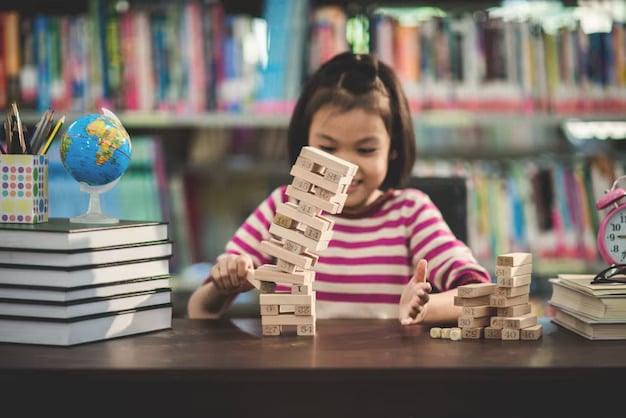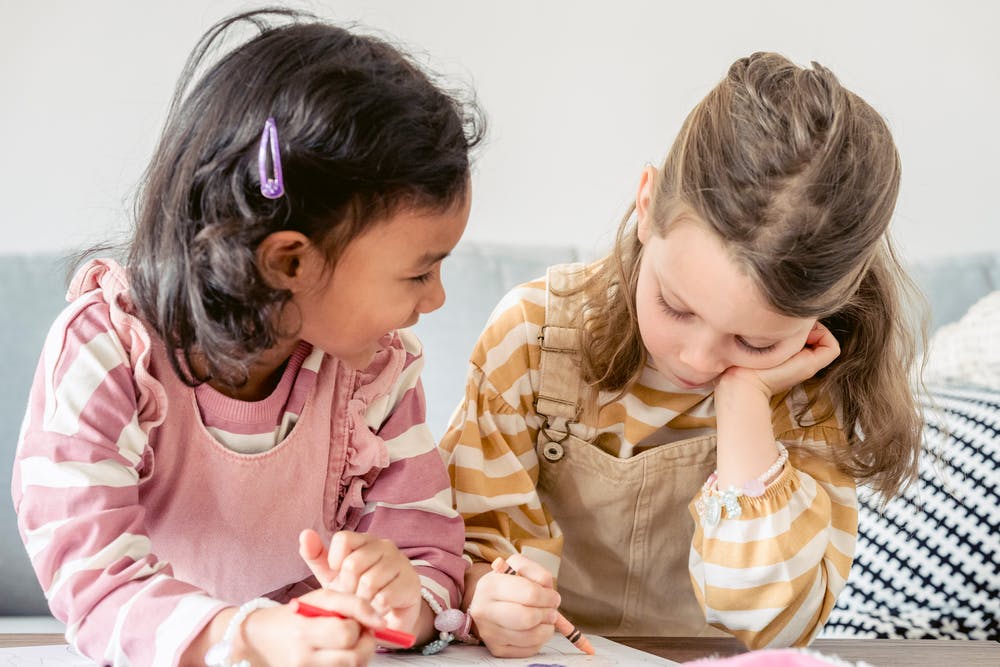How childcare professionals can de-stress during the holiday season
 In the fast-paced world of childcare, #educators often find themselves juggling numerous responsibilities, from nurturing young minds to managing daily routines. While their dedication to fostering a positive learning environment is commendable, ChildCareEd shines a light on the emotional and physical toll of this profession #leading to significant #stress and #burnout. Recognizing the importance of self-care and #stress-relief is essential for childcare professionals, not only for their own well-being but also for the benefit of the children they serve.
In the fast-paced world of childcare, #educators often find themselves juggling numerous responsibilities, from nurturing young minds to managing daily routines. While their dedication to fostering a positive learning environment is commendable, ChildCareEd shines a light on the emotional and physical toll of this profession #leading to significant #stress and #burnout. Recognizing the importance of self-care and #stress-relief is essential for childcare professionals, not only for their own well-being but also for the benefit of the children they serve.
Lighthearted Approaches to Stress Relief
Embracing a lighthearted approach to #stress-relief can transform challenging moments into opportunities for joy, connection, and creativity.
Here are some delightful strategies that childcare educators can easily integrate into their day-to-day activities:
-
Humor Breaks: Infuse humor into your routine by sharing funny anecdotes or jokes during #staff meetings or transitions. Laughter is a powerful antidote to stress and can uplift the spirits of everyone involved, creating a more relaxed environment.
-
Playful Activities: Initiate spontaneous games or #playful activities with the children. Whether it’s a quick round of “Simon Says” or a silly dance-off, these moments can provide a refreshing break from routine and foster a sense of camaraderie among staff and children alike.
-
Creative Expression: Encourage creative outlets such as drawing, painting, or crafting. These activities not only allow educators to #express themselves but also serve as therapeutic ways to unwind and reconnect with their inner child, promoting emotional well-being.
-
Mindful Moments: Incorporate short, fun mindfulness exercises. For example, a “silly breathing” exercise where everyone pretends to blow up a balloon can help educators refocus and alleviate tension in a playful manner, making mindfulness enjoyable.
-
Theme Days: Organize theme days where everyone dresses up according to a fun theme (like “crazy hat day” or “superhero day”). This can create a playful atmosphere and give everyone something to look forward to, enhancing team spirit and #engagement.
-
Nature Walks: Take the children on nature walks, allowing educators to enjoy the beauty of the #outdoors. Observing nature can be calming and provide a much-needed break from the indoor environment, promoting relaxation and mindfulness.
-
Pet Therapy: If feasible, consider having a pet visit the childcare center. Interacting with animals can significantly reduce stress and promote feelings of happiness and relaxation among both educators and children, creating a joyful atmosphere.
-
Gratitude Sharing: Create a gratitude board where educators and children can post notes about what they are thankful for. This practice can shift focus from #stressors to positive aspects of their day, fostering a #culture of appreciation and positivity.
References
- https://theearlychildhoodacademy.com/stress-relievers-for-child-care-providers/
- https://kids #health.org/en/ #parents/stress.html
Humor as a Stress-Relief Tool
Here are several ways humor can serve as a stress-relief tool for childcare educators:
-
Break the Tension: Humor can diffuse #stressful situations. When a #classroom becomes chaotic, a well-timed joke or funny story can lighten the mood, allowing both educators and children to reset emotionally. This shift can transform a potentially overwhelming moment into a shared experience of laughter, fostering resilience in the face of challenges.
-
Build Connections: Sharing laughs helps strengthen relationships among educators and children. When children see their #teachers as approachable and fun, it encourages open communication and trust, which can reduce stress for everyone involved. These connections foster a sense of community that is vital in a childcare setting, making it easier for educators to manage classroom dynamics.
-
Enhance Engagement: Incorporating humor into lessons can make learning more enjoyable. When children are engaged and having fun, they are less likely to feel anxious or overwhelmed, creating a more conducive learning environment. This engagement can lead to better retention of information and a more enthusiastic classroom atmosphere, ultimately benefiting both educators and #students.
-
Model Coping Strategies: By using humor, educators demonstrate #healthy coping mechanisms to children. This teaches them that it’s okay to find joy and laughter even in challenging situations, promoting resilience. Children learn that humor can be a powerful tool for managing stress, equipping them with skills they can use throughout their lives.
-
Foster a Positive Classroom Culture: A classroom infused with humor is often more positive and inviting. This atmosphere can lead to better behavior among students, reducing stress for educators who may otherwise face disciplinary challenges. A lighthearted environment encourages cooperation and reduces conflict, making it easier for educators to focus on teaching.
-
Encourage Creativity: Humor often involves creative thinking and spontaneity. Encouraging children to express themselves through funny stories or jokes can stimulate their imagination and foster a love for learning. This creative outlet can also serve as a form of emotional expression for children, allowing them to process their feelings in a #safe space.
-
Self-Care for Educators: Engaging in humor can be a form of self-care for educators. Taking time to laugh, whether through funny videos, jokes, or light-hearted conversations with colleagues, can significantly reduce stress levels and improve overall job satisfaction. This practice not only benefits the individual educator but also contributes to a more positive work environment, creating a ripple effect that enhances the entire classroom experience.
References
- https://pmc.ncbi.nlm.nih.gov/articles/PMC10024290/
- https://www.apa.org/topics/resilience/guide-parents-teachers
Self-Care for Educators
To effectively incorporate self-care into your routine, consider the following strategies:
-
Take Regular Breaks: Schedule short breaks throughout your day to recharge. Even a few minutes of stepping outside or enjoying a cup of tea can help clear your mind and reduce stress. Remember, a refreshed mind is a productive mind!
-
Engage in Hobbies: Dedicate time to activities that bring you joy, whether it’s painting, gardening, or reading. Hobbies can serve as a creative outlet and a way to unwind, allowing you to express yourself outside of your professional responsibilities.
-
Practice Mindfulness and Relaxation Techniques: Incorporate mindfulness practices such as meditation, deep breathing, or yoga into your daily routine. These techniques can help calm your mind, improve focus, and enhance your emotional resilience.
-
Seek Social Support: Connect with colleagues, friends, or family members. Sharing experiences and feelings can provide emotional relief and foster a sense of community. Remember, you’re not alone in this journey!
-
Establish Boundaries: Learn to say no when necessary. Protecting your time and energy is crucial for maintaining balance and preventing burnout. Setting clear boundaries helps you prioritize your well-being.
-
Prioritize Physical Health: Regular exercise, a balanced diet, and adequate #sleep are foundational to your well-being. Physical health directly impacts #mental-health, so make these a priority. Consider incorporating fun physical activities, like dancing or walking, into your routine.
-
Reflect and Journal: Take time to reflect on your day and jot down your thoughts. Journaling can help process emotions and provide clarity on stressors. It’s a great way to track your progress and celebrate small victories.
-
Attend Professional Development Workshops: Engage in training sessions that focus on stress management and self-care strategies. Continuous learning can empower you with new tools to handle stress effectively and enhance your skills as an educator.
References
- https://www.lillio.com/blog/self-care-for-the-stressed-out-childcare-professional-webinar
- https://theearlychildhoodacademy.com/stress-relievers-for-child-care-providers/
- https://kidshealth.org/en/parents/stress.html
- https://kidsmindsmatter.com/stress-in-children-signs-symptoms-and-strategies/
- https://www.apa.org/topics/resilience/guide-parents-teachers
#stress-relief
#stress-relief
- Health, safety and nutrition
- Curriculum
- Professionalism
- Child development
- Infant/ Toddler
- Preschool
- School age
- Family Child Care
- Health and Safety
- Content Areas
- Social/Emotional
- Families
- Professionalism
- Child Development
- Mental Health
- Website Articles
- Health, safety and nutrition
- Curriculum and Environment
- Professionalism
- Community and Family
- CDA
- Character Development for Childcare Professionals
- Admin as Mentors in Early Education
- A Great Place for Education Includes All ONLINE
- Allergies and Medication in Childcare
- CDA: Stand With Respect and Professionalism
- Childcare Management
- Community and Family Engagement in Childcare
- Diversity, Equity, and Inclusion in Education
- Early Childhood Education
- Enriching Education: Field Trips
- How childcare professionals can de-stress during the holiday season
- Childcare Educators in NYC: Surviving the Holiday Season in the Concrete Jungle
- ChildCareEd está en el Registro de la Fuerza Laboral de la Primera Infancia de Arizona!
- Fomentar Experiencias Seguras y Atractivas: el Papel Esencial de la Supervisión Infantil en las Actividades de Verano de Houston
- Sleigh Stress-Free: How Childcare Educators Can Stay Cool During Holiday Chaos
- Capacitación GRATUITA de CDA de Maryland con el programa de aprendizaje TTT ECE
- Lista de verificación de renovación de CDA
- Basic Health and Safety: The Must-Know Training for Childcare Professionals
- Oportunidades de becas para proveedores de Virginia
- Credencial de CDA gratuita que incluye 120 horas de entrenamiento.
- Tis the Season for Certification: Childcare Credential is the Best Gift
- Kit de Vocabulario Gratis para tu Salón de Clases!
- Back-to-School Success: Essential Skills & Strategies for Childcare Professionals
- Actividad de Arte de Rascar para Niños
- Funny anecdotes and advice for helping children navigate holiday stress and overstimulation
- Jingle All the Way to Emotional Regulation: Teaching Kids to Manage Holiday Stress
- Elf on the Shelf or Stress on the Shelf? Recognizing Holiday Anxiety in Kids
- Holiday Cooking: kid-friendly holiday recipes that involve kneading, stirring, decorating
- A 9-Hour Communication Course for Childcare Professionals
- Tis the Season for Tantrums: Holiday Parenting Hacks Rooted in Science
Call us


